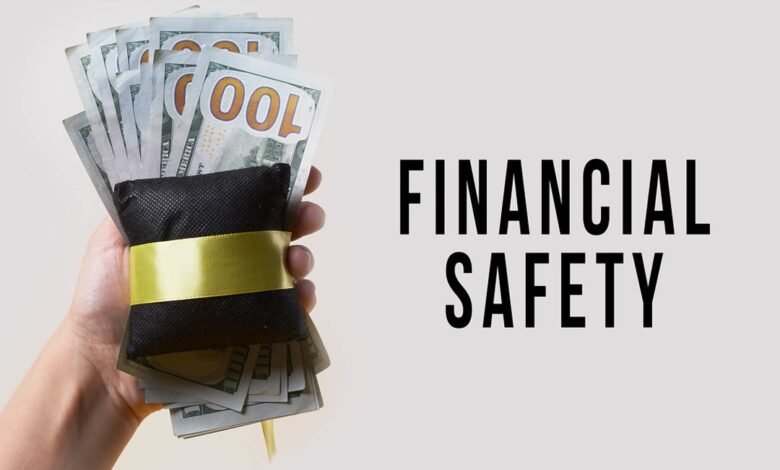Financial safety: Protect yourself from these emerging tax scams

Financial safety is paramount in today’s digital age, especially when it comes to protecting oneself from emerging tax scams. With the ever-evolving landscape of finance and technology, individuals and businesses alike face increasingly sophisticated threats to their financial well-being. Tax season, in particular, presents an opportune time for scammers to exploit vulnerabilities and deceive unsuspecting taxpayers. Thus, understanding and implementing effective strategies to safeguard against these scams is essential for maintaining financial security.
In this article, we will delve into the realm of financial safety and explore ways to protect oneself from the growing menace of tax scams. By shedding light on common tactics employed by scammers and highlighting emerging threats in the digital era, we aim to empower readers with the knowledge and tools necessary to defend against fraudulent activities. Whether you’re filing taxes as an individual or managing finances for a business, staying informed and vigilant is key to mitigating the risks associated with tax-related scams.
Fanancial safety
What are Tax Scams?
Tax scams refer to fraudulent activities designed to deceive individuals or organizations into divulging sensitive information or paying money under false pretenses. These scams often target taxpayers during tax season, exploiting their fear of non-compliance with tax laws or their desire to maximize refunds.
Importance of Financial Safety
The importance of financial safety cannot be overstated in today’s world. Financial safety encompasses a range of measures aimed at protecting individuals, businesses, and organizations from various risks and threats to their financial well-being. These risks may include fraud, theft, market volatility, economic downturns, and unforeseen emergencies. Ensuring financial safety is essential for achieving long-term financial stability, minimizing financial losses, and safeguarding against potential financial crises. By prioritizing financial safety, individuals and businesses can better withstand economic challenges, mitigate risks, and secure their financial future.
Common Types of Tax Scams
Phishing Scams
Phishing scams involve fraudulent emails, calls, or text messages impersonating legitimate organizations, such as the Internal Revenue Service (IRS) or tax preparation services. These communications typically request personal information or prompt recipients to click on malicious links, leading to identity theft or malware installation.
Identity Theft
Identity theft is a serious threat that can have devastating consequences for individuals and businesses alike. This type of fraud occurs when someone steals another person’s personal information, such as their name, Social Security number, or Financial safety details, with the intent to commit fraudulent activities. Identity thieves may use this stolen information to open credit accounts, file false tax returns, or make unauthorized purchases, among other illicit actions. The repercussions of identity theft can be far-reaching, resulting in financial losses, damage to credit scores, and significant stress and inconvenience for victims.
Fake Charities
Fake charities are a deceptive tactic employed by scammers to exploit the generosity of individuals and divert funds away from legitimate charitable causes. These fraudulent organizations often masquerade as genuine charities, using compelling stories and emotional appeals to solicit donations from well-meaning donors. However, instead of supporting charitable causes, the funds collected by fake charities are typically used for personal gain or to finance illegal activities. Victims of fake charity scams not only lose their money but also contribute to the perpetuation of fraud and deception.
Emerging Tax Scams to Watch Out For
Social Media Scams
As cryptocurrencies gain popularity, scammers are finding new ways to exploit this trend for illicit gains. Cryptocurrency scams may involve fraudulent investment schemes, fake exchanges, or phishing attempts targeting crypto investors.
COVID-19-related Scams
The COVID-19 pandemic has created opportunities for scammers to prey on individuals’ fears and uncertainties. Tax-related scams related to COVID-19 may include fake offers for pandemic-related tax relief or fraudulent schemes exploiting government stimulus programs.
How to Protect Yourself from Tax Scams
Stay Informed and Vigilant
Educate yourself about common tax scams and stay informed about emerging threats through reputable sources such as the IRS website or consumer protection agencies. Remain vigilant against unsolicited communications and be wary of any requests for personal or Financial safety information.
Secure Your Personal Information
Securing your personal information is paramount in today’s digital age, where identity theft and data breaches are prevalent threats. Personal information, such as your Social Security number, financial accounts, and passwords, is highly valuable to cybercriminals who seek to exploit it for fraudulent purposes. To protect yourself from these threats, it’s essential to implement robust security measures, such as using strong and unique passwords for your online accounts, enabling two-factor authentication whenever possible, and being cautious about sharing sensitive information online or over the phone. Additionally, regularly monitoring your financial accounts and credit reports can help detect any suspicious activity early and mitigate potential damage.
Use Trusted Sources
Using trusted sources is vital in today’s information-driven world, especially when it comes to Financial safety matters. Whether you’re seeking advice on investments, tax preparation services, or Financial safety products, relying on reputable and trustworthy sources is essential for making informed decisions and protecting your Financial safety interests. Trusted sources may include licensed financial advisors, reputable Financial safety institutions, and government agencies such as the Internal Revenue Service (IRS) or the Securities and Exchange Commission (SEC).
Read More: Intelligent Automation Event & Conference 2024
Conclusion
Safeguarding your monetary well-being towards rising tax scams is an ongoing endeavor that calls for diligence and awareness. As technology maintains to improve and scammers end up extra state-of-the-art, it is vital to stay vigilant and proactive in protecting your non-public and enterprise budget. By staying informed approximately not unusual tactics utilized by scammers and taking proactive measures to stable your touchy statistics, you can lessen the danger of falling sufferer to fraudulent sports at some point of tax season and beyond.
Remember, economic protection isn’t always pretty much defensive your assets; it is also approximately safeguarding your peace of mind and keeping trust inside the economic gadget. By following the suggestions and strategies mentioned in this article, you could toughen your defenses against tax scams and navigate the complexities of tax season with self assurance. Stay knowledgeable, stay vigilant, and prioritize your monetary security to revel in a brighter and extra stable economic future.
FAQs
How can I recognize a tax scam?
Tax scams often involve unsolicited communications requesting personal or financial information or promising unrealistic refunds or benefits.
What should I do if I suspect I’ve fallen victim to a tax scam?
If you suspect you’ve been targeted by a tax scam, report it to the appropriate authorities, such as the IRS or the Federal Trade Commission (FTC), and take steps to secure your personal information.
Are there any red flags to watch out for when dealing with tax preparers or financial professionals?
Be cautious of tax preparers or financial professionals who guarantee large refunds or charge exorbitant fees. Always verify their credentials and reputation before entrusting them with your financial information.
How can I protect myself from identity theft during tax season?
To protect yourself from identity theft, safeguard your Social Security number and other sensitive information, use secure passwords for online accounts, and monitor your credit reports regularly for suspicious activity.
What should I do if I receive a suspicious email or phone call claiming to be from the IRS?
If you receive a suspicious communication claiming to be from the IRS, do not respond or provide any personal information. Instead, report it to the IRS through their official website and delete the message or hang up the call immediately.











